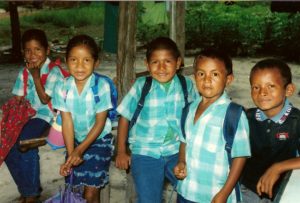Related posts
-

Lindender Taneila Croal shares her journey as a young entrepreneur
By Utamu Belle At 26 years old, Lindener Taneila Croal has her eyes set on living... -

Poetry is my way of expressing what I’ve been through or what I am going through – Kelwin Gittens
By Lakhram Bhagirat Sometimes finding the right word to ascribe to your feelings of intimacy and... -

This International Women’s Day, Let’s focus on
equity over equality By Marlee Silva for ABC News International Women’s Day was a rather foreign...

 Many of the age-old indigenous postnatal customs are fading due to new technologies and urbanization. However, research done on these customs still make for a good read, and may even encourage youths of today to learn more about their heritage.
Many of the age-old indigenous postnatal customs are fading due to new technologies and urbanization. However, research done on these customs still make for a good read, and may even encourage youths of today to learn more about their heritage.